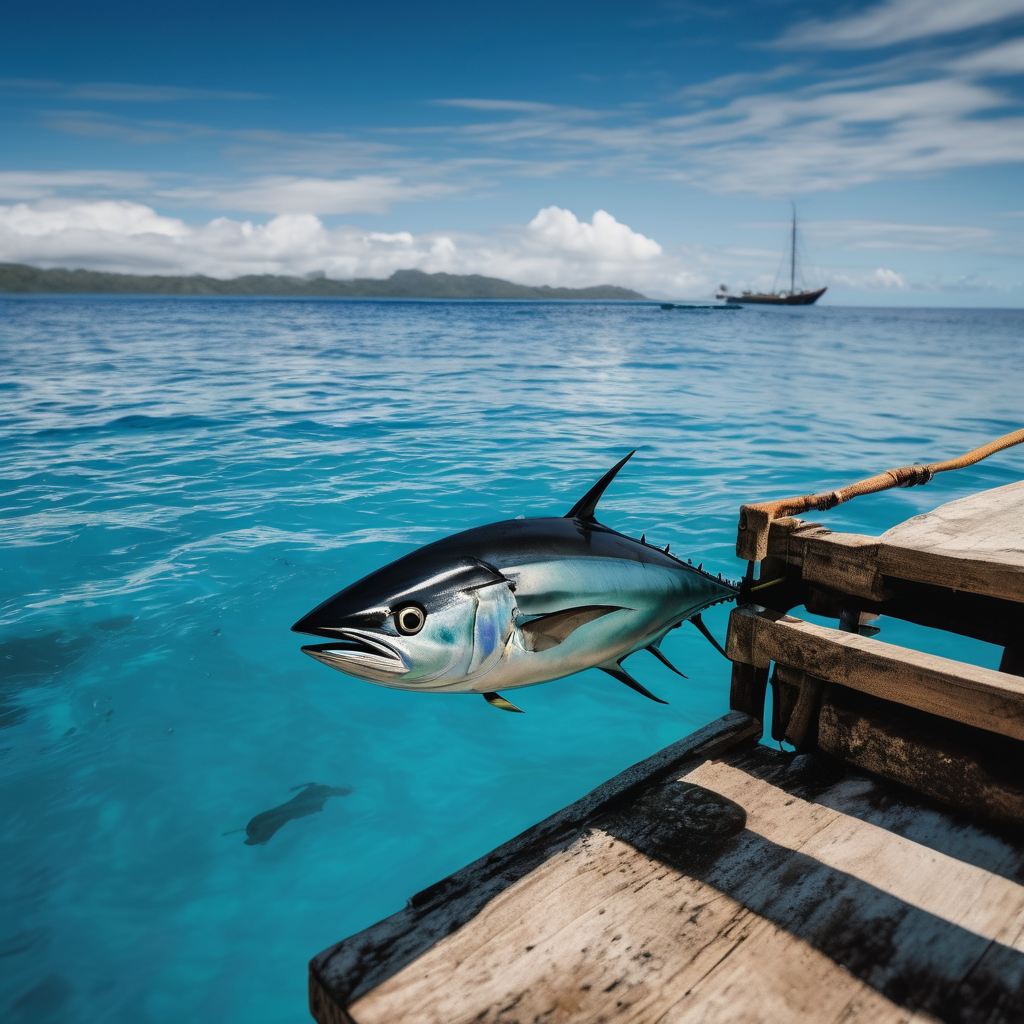Australian seafood enthusiasts consume approximately 350,000 to 400,000 tonnes of seafood annually, with tuna being a significant delicacy. However, a recent report from the Marine Stewardship Council (MSC) highlights alarming trends due to climate change that threaten traditional fishing grounds for migratory tuna species.
The MSC’s findings indicate that as ocean temperatures rise, tuna populations are shifting to cooler waters, which could have dire consequences for countries reliant on tuna fishing, particularly in the Western Central Pacific Ocean. This region, which includes many Pacific Island nations, generates around US$4.9 billion annually from tuna fisheries. Fishermen from these islands, like Rosemarie Palu from Tonga, express growing concern as tuna stocks decline. Palu noted that, while their operations may fare decently over the next decade, the long-term outlook is grim.
“We have witnessed fish moving further away from our waters,” she warned, indicating increased costs and challenges to access these declining stocks. Eddie Palu, her husband, echoed her sentiments, predicting a severe decline in tuna availability over the next two to three decades, primarily driven by climate change. This behavioral shift of tuna fishes means that accessing them will require longer trips and more fuel, which is becoming increasingly expensive.
The coastal economies of many Pacific Island nations significantly depend on tuna, and this worrying trend of declining stocks could lead to economic hardships. The MSC emphasizes the need for collaborative management efforts among nations to adapt to these changes and maintain sustainable tuna fisheries.
Bill Holden, the global head of tuna at MSC, noted that shifts in tuna populations can disrupt traditional fishing patterns known to many fishers for decades. He explained that climatic events like El Niño and La Niña have historically affected tuna migration, but now climate change is exacerbating these challenges.
Joe Zelasney, manager of the Common Oceans Tuna Project, reiterated the urgency for collaborative efforts among governments and regional organizations, emphasizing that food security and livelihoods in small island states are at risk. Lauren Koerner, MSC’s data science manager, warned that existing quotas will need to adapt as tuna populations shift into new jurisdictions.
The study, published in the journal Cell Reports Sustainability, highlights a pressing need for countries and organizations to redraft management boundaries for sustainable tuna fishing.
In a larger context, there is hopeful momentum around the Pacific Islands with initiatives such as the recent US$107 million grant from the Green Climate Fund aimed at helping fourteen Pacific countries adapt their economies to the migratory impacts of climate change on tuna. This funding reflects an important shift toward proactive measure as governments exhibit a commitment to preserving fishing livelihoods that form the backbone of many island nations.
The resilience and ongoing cooperative efforts among Pacific nations can serve as a model for addressing climate challenges, fostering hope for sustainable fisheries management and economic stability in the face of a warming ocean.
